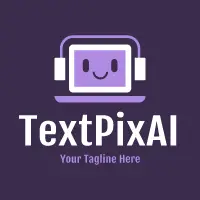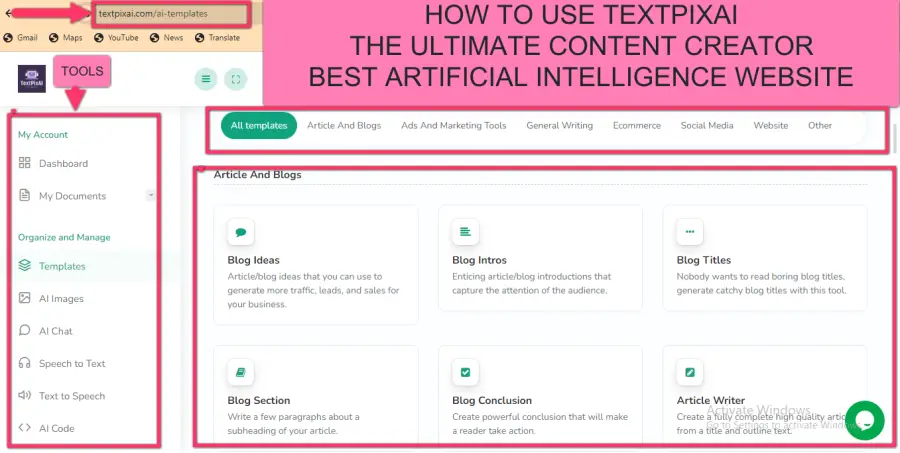Drug Discovery: The Role of Artificial Intelligence
Introduction
The field of drug discovery has undergone a remarkable transformation with the integration of Artificial Intelligence (AI) into the research and development process. In this article, we will delve into the profound impact of AI on drug discovery, elucidating its numerous advantages, real-world applications, accompanying challenges, and the potential it holds to expedite the development of life-saving medications. By the end of this article, you will gain a comprehensive understanding of how AI is revolutionizing the pharmaceutical industry.
You may also like to read:
Drug discovery and development constitute an intricate, protracted, and often prohibitively expensive process. However, AI has emerged as a powerful catalyst, capable of significantly expediting this process and, in doing so, facilitating the discovery of innovative therapeutics for a myriad of diseases.
Advantages of AI in Drug Discovery
Accelerated Drug Screening
AI algorithms have the remarkable ability to swiftly analyze vast datasets comprising chemical compounds, thereby predicting their potential as viable drug candidates. This expedites the screening process, enabling researchers to focus their efforts on the most promising candidates and substantially reducing the time required for initial drug discovery.
Target Identification
One of the pivotal early stages in drug discovery is the identification of suitable drug targets. AI models can meticulously analyze biological data, encompassing genomics and proteomics, to pinpoint potential targets for therapeutic intervention. This data-driven approach heightens the probability of identifying effective drug targets.
Drug Design and Optimization
AI-driven molecular modeling plays an integral role in the design and optimization of drug candidates. Machine learning models can predict the binding affinity of compounds to target proteins, thereby assisting researchers in fine-tuning drug molecules for enhanced efficacy and reduced side effects.
Predicting Drug-Drug Interactions
AI algorithms have the capacity to predict potential drug-drug interactions, mitigating the risks associated with polypharmacy and enhancing patient safety. By meticulously scrutinizing vast datasets of known interactions, AI can offer invaluable insights into potential drug combinations and their safety profiles.
Real-World Applications
Drug Repurposing
AI has been a game-changer in the realm of drug repurposing. By scrutinizing drug databases and biological data, AI can unveil hitherto undiscovered potential applications for existing drugs, potentially saving years of development time and substantial costs.
Rare Disease Research
Drug discovery for rare diseases presents unique challenges, primarily due to the scarcity of available data. AI can analyze existing data and forecast potential drug candidates for rare diseases, instilling hope in patients grappling with conditions that were previously overlooked.
Targeting Undruggable Proteins
Certain disease-associated proteins have traditionally been considered "undruggable" owing to their complex structures. AI-driven drug discovery approaches, including structure-based design and virtual screening, are rendering it feasible to target proteins that were once deemed impervious, thus opening up new avenues for drug development.
Personalized Medicine
AI is spearheading the advent of personalized medicine by scrutinizing individual patient data, encompassing genetics and clinical history, to tailor treatments to each patient's unique characteristics. This approach holds the promise of more effective treatments with fewer side effects, representing a significant stride forward in healthcare's ability to deliver timely and precise care.
Challenges and Considerations
Data Quality and Quantity
The efficacy of AI in drug discovery is contingent upon the availability of high-quality data. Ensuring that datasets are comprehensive and accurate assumes paramount importance in AI-driven projects. Furthermore, the acquisition of large and diverse datasets, particularly for rare diseases, can pose formidable challenges.
Regulatory Compliance
Navigating the regulatory landscape for AI-driven drug discovery can be an intricate process. Regulatory agencies such as the FDA are actively working on establishing guidelines for the approval of AI-generated drug candidates. Adherence to evolving regulations is imperative.
Ethical Concerns
As AI becomes increasingly ingrained in drug discovery, ethical considerations surrounding data privacy, consent, and equity necessitate meticulous attention. Ensuring that AI benefits all patients and does not exacerbate healthcare disparities is a critical concern that demands diligent addressing.
Case Studies
Atomwise
Atomwise is an example of a company that harnesses the power of AI for drug discovery. Its AI platform, AtomNet, employs deep learning to analyze molecular structures, predicting potential drug candidates. Atomwise has achieved noteworthy success in identifying promising candidates for various diseases, including Ebola and multiple sclerosis.
BenevolentAI
BenevolentAI is at the vanguard of leveraging AI to analyze copious amounts of biomedical data for drug discovery. Their AI algorithms have contributed to the identification of potential treatments for ailments like amyotrophic lateral sclerosis (ALS) and other neurodegenerative diseases.
Future Outlook
Collaboration between AI and Researchers
The future of drug discovery resides in the harmonious synergy between AI and human researchers. AI boasts the capability to process and analyze data on an unprecedented scale, while researchers contribute domain expertise and creativity to the equation. This collaborative dynamic is poised to yield groundbreaking discoveries in the years to come.
Expansion into Rare Diseases
AI's potential in rare disease research is particularly promising. Its ability to make predictions based on limited data accelerates the discovery of treatments for diseases that affect a relatively small number of patients. This could significantly ameliorate the lives of those grappling with rare conditions.
Conclusion
Artificial Intelligence is effecting a profound transformation in the arena of drug discovery, promising swifter, more efficient, and more targeted approaches to the identification of novel therapeutics. While challenges loom on the horizon, the potential benefits for patients and the pharmaceutical industry at large are colossal.
The integration of AI into drug discovery constitutes a veritable revolution, holding the key to saving lives, curtailing development costs, and addressing diseases that were previously impervious to intervention. As AI-driven drug discovery continues to evolve, it opens the door to a new era of medical breakthroughs.
References
- Stokes, J. M., Yang, K., Swanson, K., Jin, W., Cubillos-Ruiz, A., Donghia, N. M., ... & Shokat, K. M. (2020). A deep learning approach to antibiotic discovery. Cell, 180(4), 688-702.
- Aliper, A., Plis, S., Artemov, A., Ulloa, A., Mamoshina, P., & Zhavoronkov, A. (2016). Deep learning applications for predicting pharmacological properties of drugs and drug repurposing using transcriptomic data. Molecular pharmaceutics, 13(7), 2524-2530.
- Zhavoronkov, A., Ivanenkov, Y. A., Aliper, A., Veselov, M. S., Aladinskiy, V. A., Aladinskaya, A. V., ... & Cantor, C. R. (2019). Deep learning enables rapid identification of potent DDR1 kinase inhibitors. Nature biotechnology, 37(9), 1038-1040.
This comprehensive article on AI in drug discovery provides valuable insights for researchers, pharmaceutical professionals, policymakers, and anyone interested in the transformative potential of AI in the field of healthcare and pharmaceuticals. It underscores the critical role of AI in accelerating drug discovery processes and advancing medical science.







